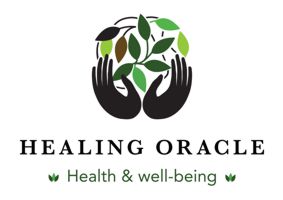Aspartame is one of the common ingredients found in artificial sweeteners on the market. It is also one of the worst products in this category. Aspartame has been shown to cause weight gain and other health problems, including headaches and dizziness. There are also two others: aminoguanidine and sucralose, typically used by people with diabetes and those concerned about their weight. This is happening, although artificial sweeteners have been proven to produce the exact opposite effects that it claims!
Research [1] shows that aspartame worsens insulin sensitivity significantly more than sugar. Artificial sweeteners are also proven to promote weight gain in many different ways stated in additional studies [2]. Artificial sweeteners have recently crawled into various products, indirectly targeting diabetics and dieters.
The rising demand for artificial sweeteners in the food industry has pushed the food industry to hide the presence of these additives on labels. Like genetically modified organisms (GMOs), this tactic is designed to keep consumers unsure about what they are eating and thus persuade them to continue buying products containing non-natural ingredients.
Artificial Sweeteners Cause Metabolic Confusion
Artificial sweeteners do not help people shed kilos but lack the calories needed to trick the brain into thinking that you have eaten something sweet. When you consume something sweet, your brain releases dopamine, which activates your brain’s reward centre. The appetite-regulating hormone leptin is also released, making it clear to your brain that you are “full” once a certain number of calories have been ingested.
But when you eat something that tastes sweet but doesn’t contain any calories, your brain’s pleasure pathway gets activated by the sweet taste, but there’s nothing to deactivate since the calories never arrive [3]. Artificial sweeteners trick the human body into thinking it will receive sugar (calories). Still, when the sugar isn’t received, the body continues to signal that it needs more.
Besides complicating insulin sensitivity and promoting weight gain, other artificial sweeteners and aspartame also promote other health problems related to excessive sugar consumption, including cardiovascular disease and strokes [4].
Another health issue it invites is Alzheimer’s disease [5]. The primary culprits in the development of Alzheimer’s disease are sugar and grains, which affect a person’s diet. However, methanol toxicity–a much-ignored problem associated with aspartame in particular–is another factor contributing to this disease’s development. In many contexts, experts explain the links between aspartame and methanol toxicity and the formation of toxic formaldehyde [6].
Scientific Denial of ‘Diet’ Claims in Artificial Sweeteners
Quite shockingly, the industry claims are the opposite of what is claimed. Many studies have shown that artificial sweeteners increase cravings for carbs, stimulate appetite, and produce a variety of metabolic dysfunctions which boost fat storage and weight gain, which proves that you are being marketed for a farce product having unreal claims. Millions of studies refute the fact that the beverage industry promotes that diet soda aids weight loss. In reality, weight gain and changes in appetite are the most common issues faced with long-term aspartame consumption.
Eating processed and fast foods may kill more prematurely [7] than other chronic diseases like cancer. Similarly, we have more dangerous items that we consume in our daily lives. One such is Diet Soda! Read here how terrible it is for you and has nothing to do with weight loss!
Studies show that drinking diet soda increases the likelihood of serious weight gain. On average, for each diet soda consumed per day, participants were 65 per cent likely to become overweight during the next 7-8 years and 41 per cent more likely to become obese. There are studies [8] that delve into the neurobiology of those commonly known sugar cravings and the epidemiological & experimental evidence concerning the effect of artificial sweeteners on body weight.
Artificial Sweeteners and the harm they cause:
Specific mechanisms are artificial sweeteners, which pack the person with unwanted pounds and disrupt your metabolic function. Such studies prove causation that is much required for artificial sweeteners. In the past few years, the role of gut microbes has increasingly been uncovered, and its role in human health is significant. Certain gut microbes have been found to have been linked with obesity; for instance, it turns out that artificial sweeteners disrupt your intestinal microflora- thereby raising your risk of both obesity and diabetes.
Also:
- Artificial Sweeteners are found that artificial sweeteners alter metabolic pathways associated with metabolic disease [9].
- Artificial Sweeteners are responsible for a decreased function observed in pathways associated with sugar transport in the body [10].
- Artificial sweeteners induce gut dysbiosis & glucose intolerance in otherwise healthy people [11].
- Of all artificial sweeteners tested, saccharin is the strongest on impact, followed by sucralose and aspartame [12].
- Glucose intolerance, a general condition for type 2 diabetes patients, also plays a role in obesity because excess sugar in the blood is stored in fat cells.
What’s the Way Out?
When you add together the various methods of harm—from confusing your body with a sweet taste without calories to altering the gut bacteria, it is quite easy to understand how artificial sweeteners have played a role in worsening diabetes and obesity epidemics since their emergence in our food supply. Avoiding all artificial sweeteners is strongly recommended, and read food labels to ensure you’re not inadvertently consuming them. It is estimated that these products are found in 6,000 different beverages, snacks, and food products; therefore, it is impossible for anyone to avoid them altogether.
You could use stevia or Luo Han as a sweetener, both of which are safe, natural alternatives. However, if you have any of the following conditions, it may be wise to avoid all types of sweeteners: high blood pressure, high cholesterol, diabetes or extra weight.
Unfortunately, like sugar, artificial sweeteners can cause you to become addicted to them. If you have trouble quitting diet soda, it is hard for you to overcome the desire for sweet-tasting foods. But if you are determined to quit soda, there are plenty of ways. If you have tried other methods and failed, Turbo Tapping may be just what you need. This version of the Emotional Freedom Technique (EFT) [13] is geared explicitly toward combatting sugar cravings. For instructions on how to use EFT to fight food cravings of all kinds, you can track down some information from the web on “how to get rid of the soda addiction”.
If you still struggle with cravings after trying Turbo Tapping or EFT, you may need to make further changes to your diet. You can choose to go on a fruitarian diet, where you can include a moderate inclusion of vegetables, nuts, dried fruits, and seeds. Other food sources, such as legumes, grains, and meat, are limited or eliminated. If you are impressed by a fruitarian diet, find here more details and proceed slowly. Rather than starting all at once, make a wise choice and gradually make a transition.
You must also be careful about the ingredients you consume in packaged food. Find some food contents that can harm you in different ways. Certain foods can trigger pain and inflammation; find the list here and avoid them!
Diet plays a significant role in how we conduct our body and steering the journey to a healthy life. Do you know that there is a list of food that can fight and kill cancer stem cells? Food has a fantastic role to play as a healthy diet is undeniable in the process of healthy living!
Healing Oracle wishes you a positive & healthy life!
References and Sources:
- https://www.ncbi.nlm.nih.gov/pmc/articles/PMC7014832/
- https://www.ncbi.nlm.nih.gov/pmc/articles/PMC7817779/
- https://pubmed.ncbi.nlm.nih.gov/28198207
- https://www.ncbi.nlm.nih.gov/pmc/articles/PMC8917806/
- https://www.ncbi.nlm.nih.gov/pmc/articles/PMC5405737/
- https://www.ncbi.nlm.nih.gov/pmc/articles/PMC3198517/
- https://www.ncbi.nlm.nih.gov/pmc/articles/PMC4491542/
- https://pubmed.ncbi.nlm.nih.gov/20589192/
- https://www.ncbi.nlm.nih.gov/pmc/articles/PMC2951976/
- https://www.ncbi.nlm.nih.gov/pmc/articles/PMC8156656/
- https://www.ncbi.nlm.nih.gov/pmc/articles/PMC6363527/
- https://www.ncbi.nlm.nih.gov/pmc/articles/PMC3198517/
- https://www.ncbi.nlm.nih.gov/pmc/articles/PMC6381429/
Love and Light
The Healing Oracle Team
Please join our growing numbers on MeWe: Healing Oracle
Also join us on Twitter | YouTube
Global Petition
Please sign our global petition against enforced vaccinations The intention of this petition is to present 5 million signatures to each President, Prime Minister, Health Minister and heads of state worldwide.
Vaccines are a global problem and need to be tackled on a global level.
If we stand as one, we have a chance of saving the children of the future.

